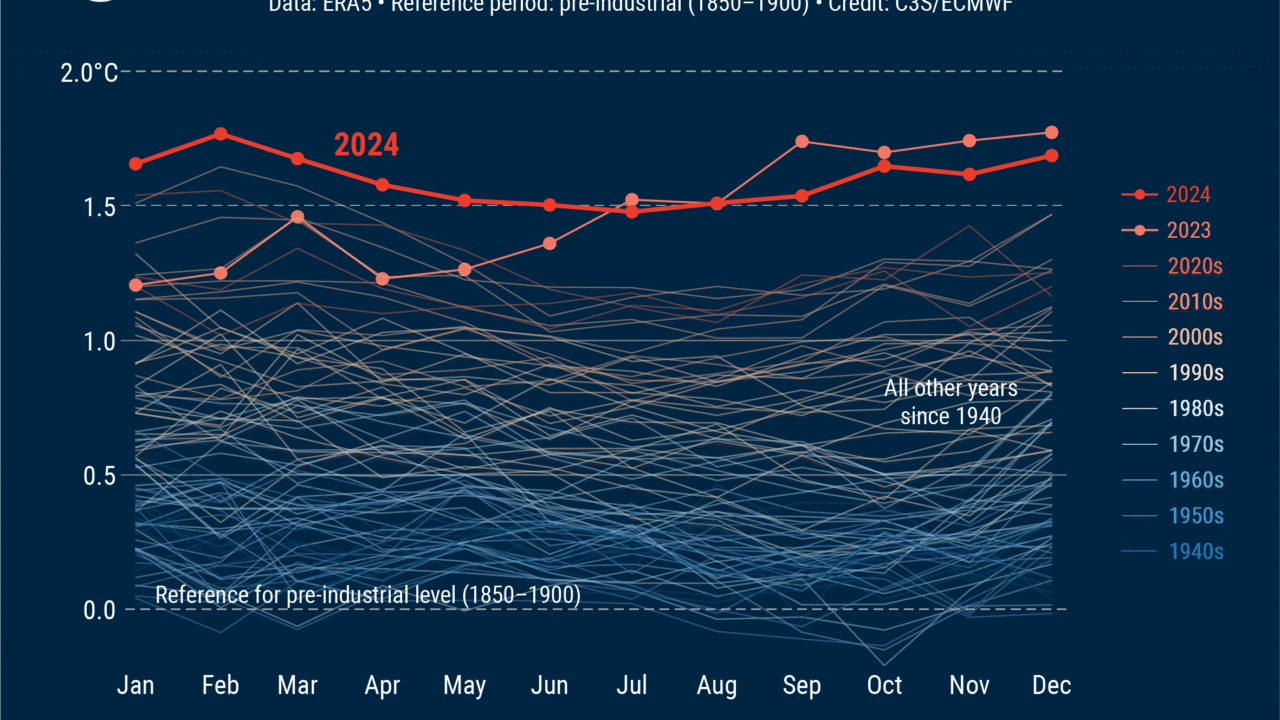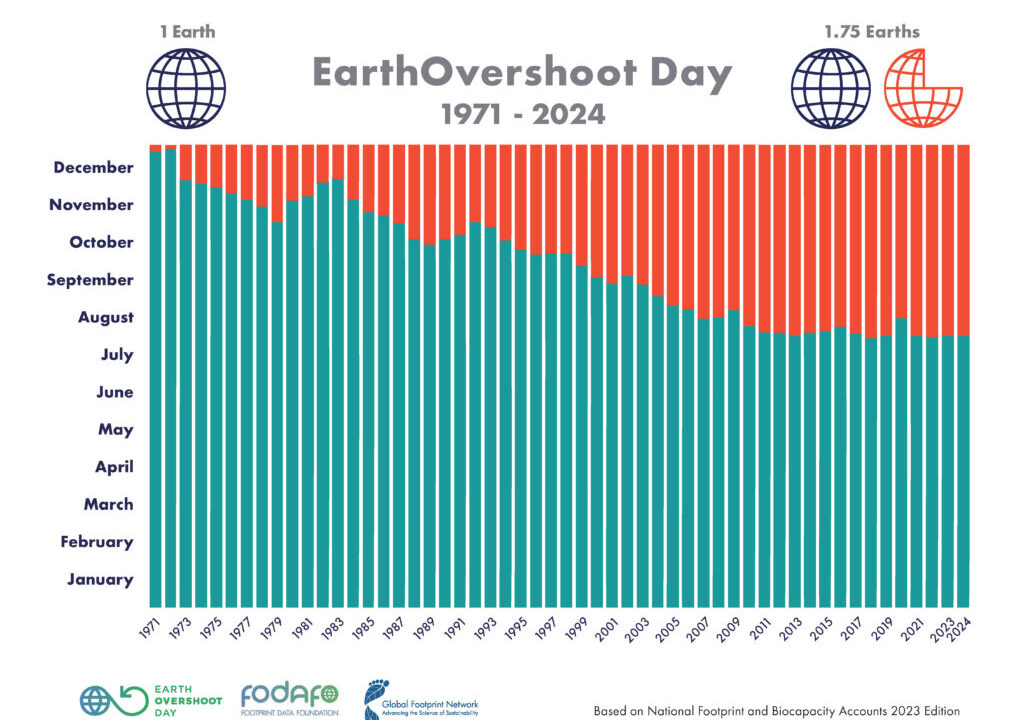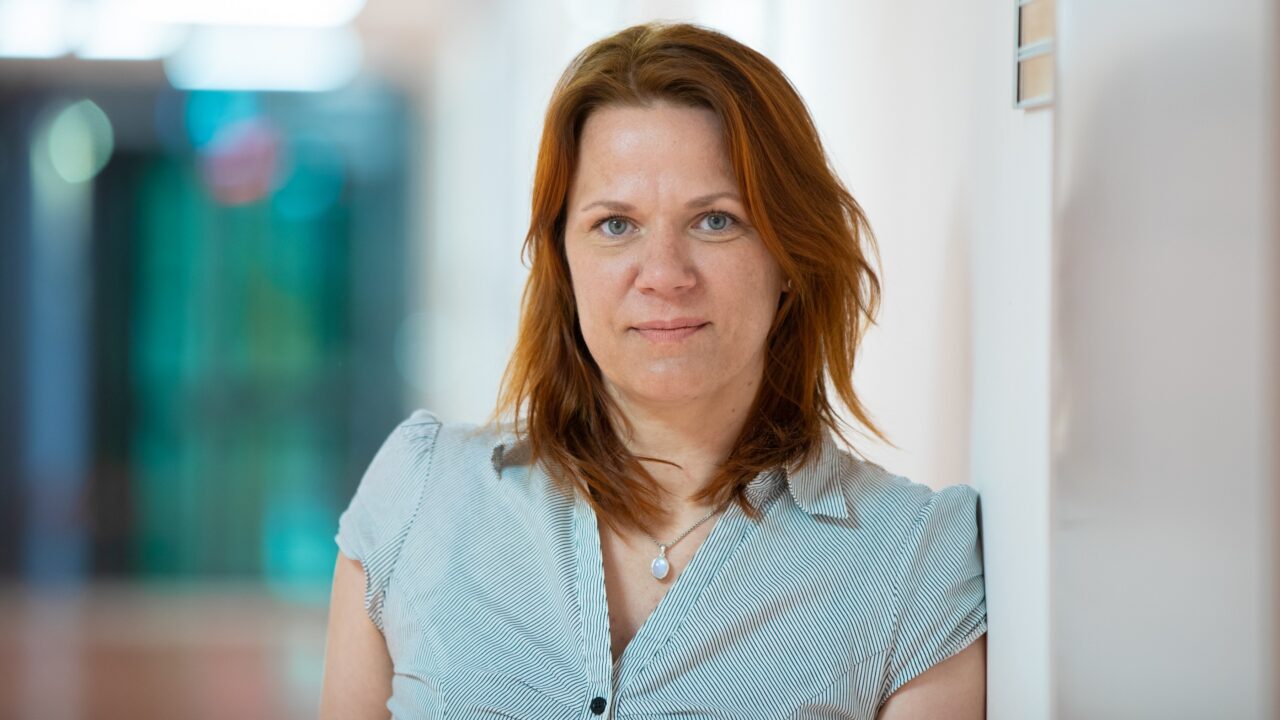2023 and 2024 were not just the hottest years in the planet’s recorded history – they were dramatically hotter. In 2024, we crossed the 1.5-degree threshold (the Earth’s annual average temperature compared to pre-industrial times), a limit that was globally agreed in the 2015 Paris Climate Agreement not to be exceeded at least until 2100. Scientists still don’t know exactly why it happened now and with such intensity. What is certain, however, is that it won’t leave anyone cold – it will likely affect us all.
A warmer climate doesn’t just mean that strawberries in Estonia ripen by Mother’s Day and the weather at Midsummer is nicer. Extreme weather events are becoming more frequent – in Northern Europe, precipitation and the risk of flooding are increasing, while in Southern Europe water scarcity, desertification, and water salinity are intensifying.
Water quality and availability are deteriorating – pollutant levels are increasing, drinking water quality is declining, and groundwater replenishment is slowing down. Droughts are becoming more frequent and severe. Erosion and sediment runoff will accelerate, and rising sea levels threaten coastal areas and their infrastructure.
These are just some of the effects listed by Professor Jaanus Terasmaa, ecohydrology professor at Tallinn University, during a recent afternoon discussion at the Estonian Academy of Sciences, which focused on the science-based management of climate change. The result is increasing pressure on ecosystems – and without ecosystems, life as we know it is not possible.
Scientific consensus states that over 90% of post-industrial climate warming is caused by human activity. But not all is hopeless: for example, the reduction of CFC use agreed upon in Montreal in 1987 has yielded results, and the thinning of the ozone layer has slowed. This shows that similarly large-scale human-led agreements can help – if they are followed.
Ironically, we have been saved from an even more intense heatwave by air pollution: particles in smoke, smog, and dust clouds reflect some of the sun’s radiation back into space. The more we reduce air pollution, the more the warming effect of greenhouse gases becomes apparent. But this doesn’t mean “drill baby, drill,” because air pollution poses a serious health risk and is even among the leading causes of death. This situation, made up of equally harmful outcomes, means that fossil fuel use must be reduced in any case – because that way we reduce both greenhouse gases and air pollution

The years 2023 and 2024 were the hottest in the planet’s recorded history. Graph: C3S/ECMWF
Estonians as climate sceptics
Climate change is real and global, but its effects are local. Yet in surveys, Estonians stand out for their climate indifference. In the 2024 Eurobarometer, 33% of Europeans considered climate an important issue – in Estonia, only 11%.
We know the legend: Estonians tend to worry about getting a new TV, having children, or obtaining someone’s phone number. We are such a worry-prone nation that the word worry is used for everyday things. But not for this one: in the 2021 European Social Survey, nearly 60% of Estonians said they were not worried about climate change. We were the least climate-concerned country in Europe, with only 25% saying climate change was worth worrying about.
The same survey asked how responsible people felt for climate change. Nearly 10% of Estonians said not at all, while just over 8% said a great deal. According to Orkla’s Sustainability Barometer in 2023, Estonians’ willingness to make environmentally friendly choices in everyday life had declined over the year. Every third Estonian did not acknowledge the existence of the climate crisis – making us the most climate-sceptical among Nordic and Baltic nations. Even more striking: compared to the previous year, the number of deniers had increased by five percentage points.
So today, alongside fulfilling the Big Agreements, we urgently need communication that reaches every individual. That’s why I’m writing all this now. Today is Earth Day. It has been celebrated since 1970, when the modern environmental movement began. And there is something to celebrate – because we have no second planet to live on. Protecting nature is not for nature’s sake – it’s for ourselves.
Our power, our planet
The theme of this year’s Earth Day is “Our power, our planet.” Each of us has the ability to take action.
Every time you get in a car, you can ask yourself whether the trip really needs to be made by car – or if there’s a more sustainable way. When ordering or planning food, you can consider skipping meat or choosing not to buy tap water in a plastic bottle.
Decisions to buy new things can be postponed and considered more carefully – maybe something old can be repaired instead? Every day, we can avoid a significant amount of packaging waste, delete blurry or unnecessary photos from our phones, and make sure batteries and electronic waste go to the right place instead of into household trash. When cleaning our homes, we can avoid toxic chemicals, and when buying groceries, choose more organic food – to help keep our environment cleaner.
So far, we’ve acted globally in the opposite way – Estonia included. The date of Earth Overshoot Day moves earlier each year. This day marks the point when we’ve used up the year’s share of renewable resources and begin borrowing from the future – from our children and grandchildren.

Ületarbimise päev on kuupäev, milleks oleme selle aasta õiglased ressursid ära kasutanud ja hakkame laenama tulevikult. See tähendab, meie lastelt ja lastelastelt.
By the way, it’s worth noting that starting this year, Estonia has for the first time been rated a fully democratic country.
Of course, there will always be those who ignore scientists. After all, there are still people who refuse to acknowledge that the Earth is more of a sphere than a pancake. And there will always be political forces that deny the climate crisis (and every other crisis) to please their voters.
So now we have a choice: will we use our right—granted in a fully democratic country—to listen to what scientists are saying and care for the planet we share with future generations?
Our power, our planet.
Earth Day is celebrated on April 22 and is observed in around 190 countries worldwide.
The tradition began in 1970 in the United States, when millions of people protested against environmental pollution. Today, Earth Day is marked by various events and initiatives across the globe, aimed at raising awareness of environmental issues – including global warming, air pollution, excessive energy consumption, and over-reliance on cars.




